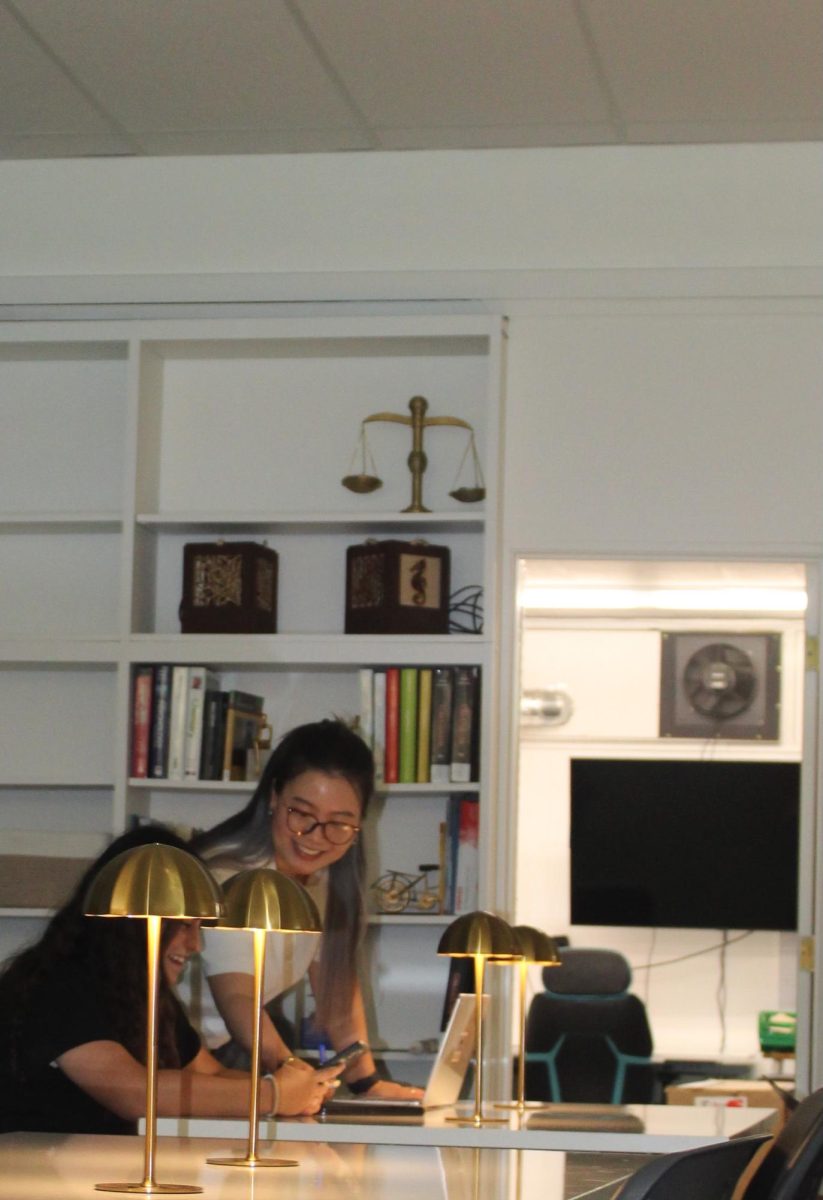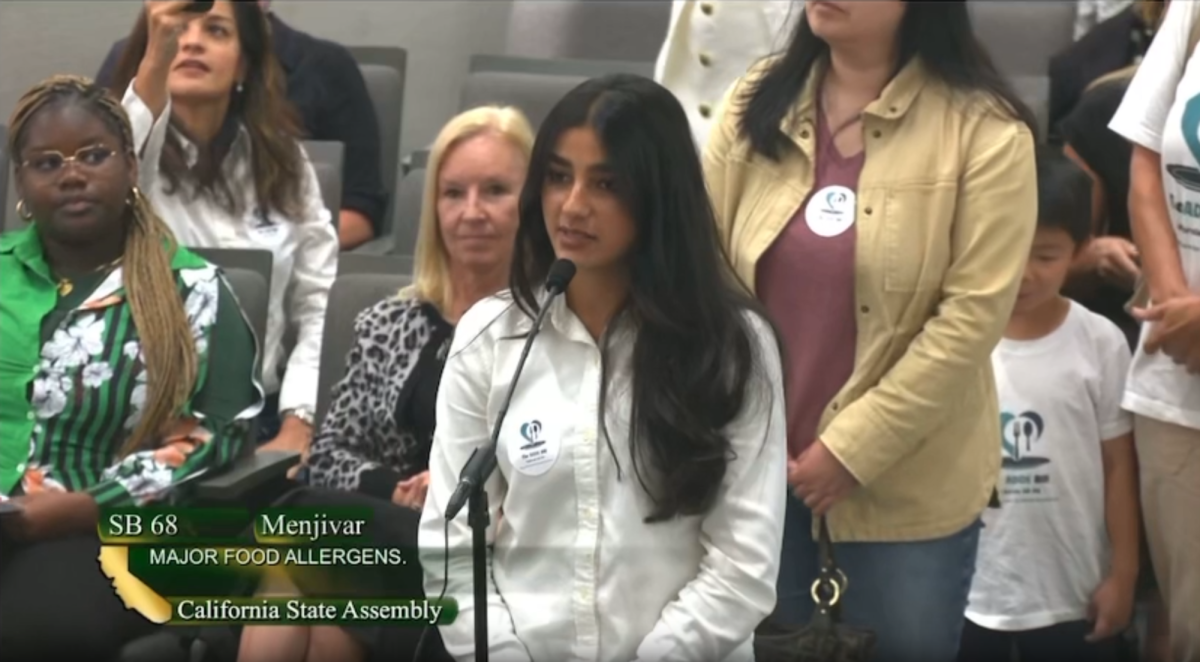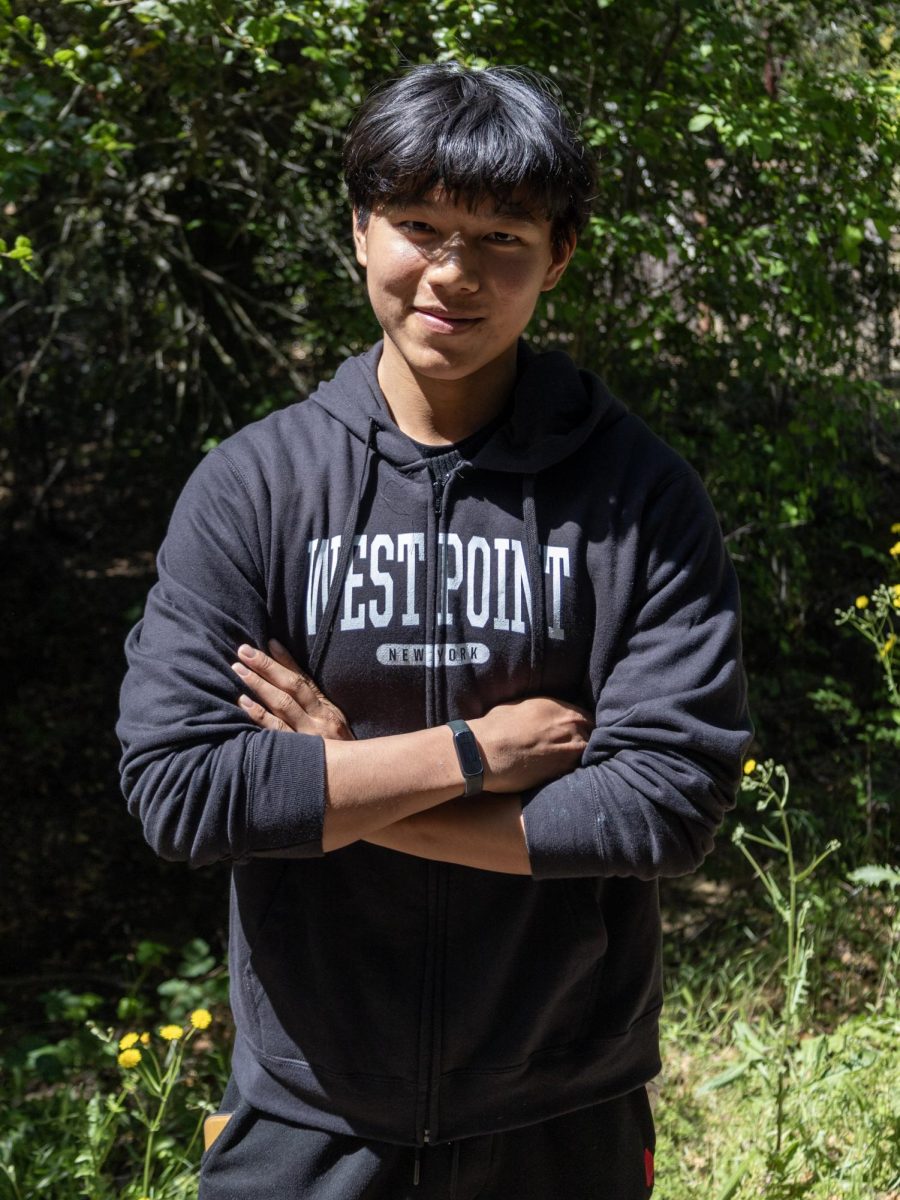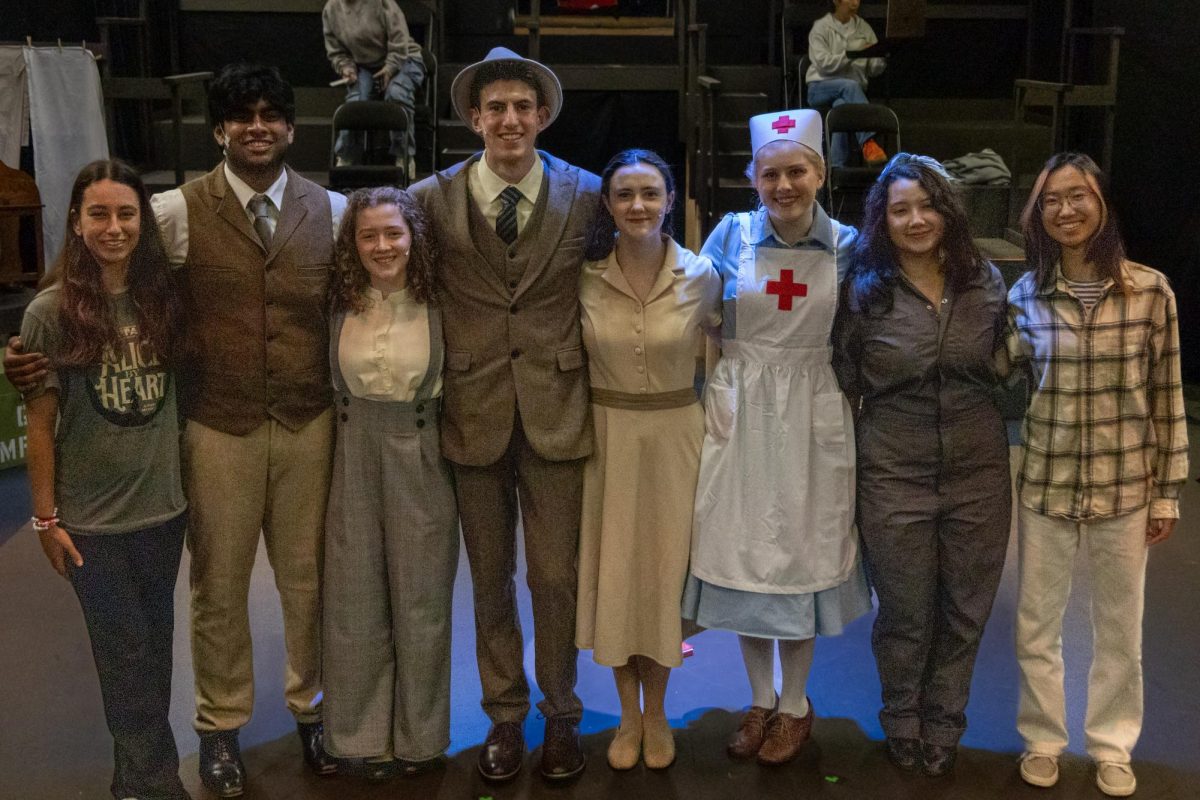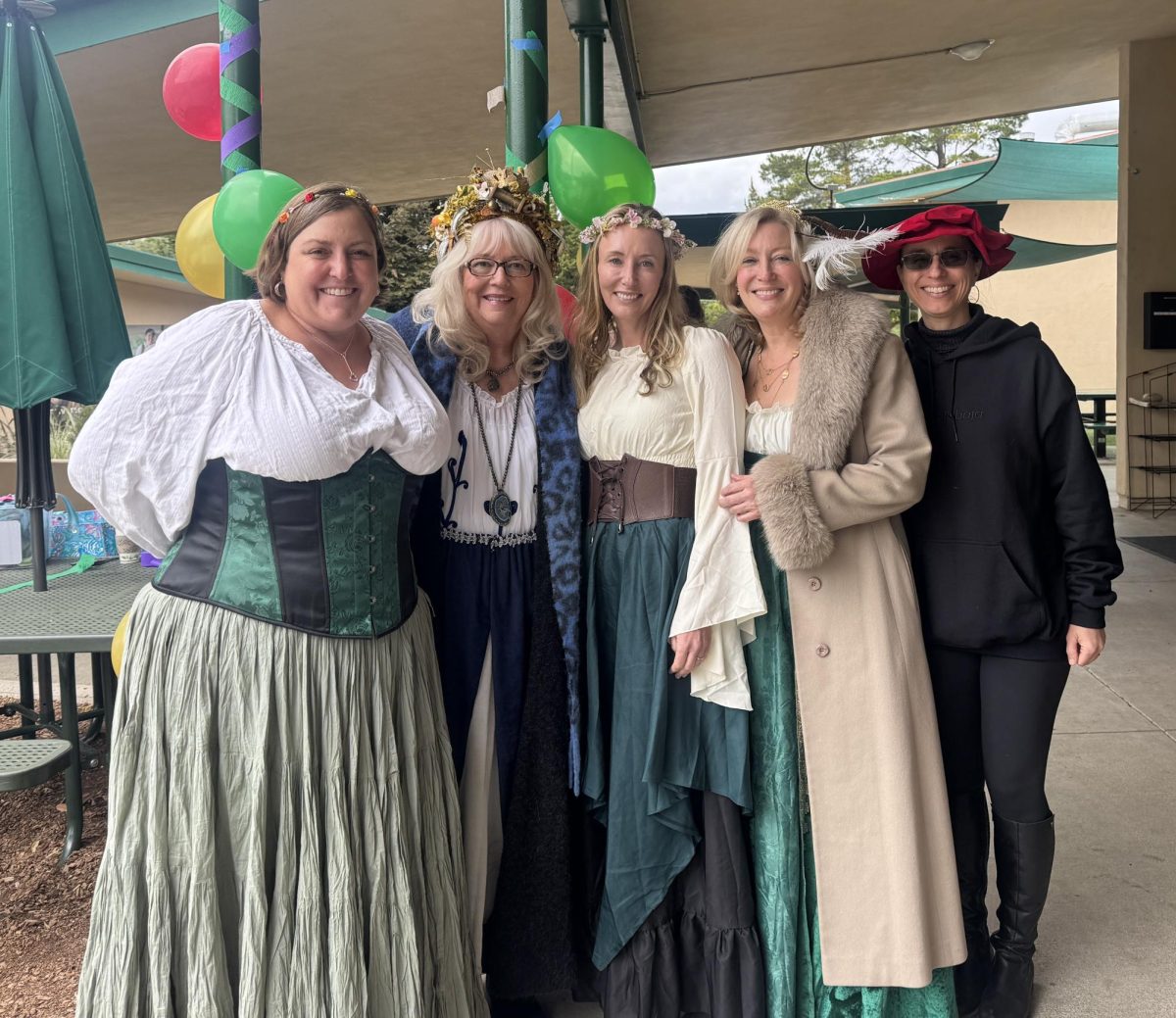Pinewood’s most famous alumnus and critically-acclaimed film director Jon M. Chu has a new movie coming out on Nov. 22 that’s sure to be a blockbuster: “Wicked – Part 1.” The movie is an adaptation of the Tony award-winning Broadway musical and stars Cynthia Erivo and Ariana Grande. His other films include “In the Heights,” ”Now You See Me 2,” ”Justin Bieber: Never Say Never,” and “Crazy Rich Asians.”
In an exclusive interview, Perennial Staff Writer Addison Parenti spoke with the 1998 Evergreen graduate about his career, his experience with “Wicked,” and how his time at Pinewood plays a role in his career.
Q: What made you want to direct “Wicked”?
JC: I was a big fan of “Wicked” – I saw it before it went to Broadway, and so I’ve loved it all the time. I tried to get the job for the last 20 years, but they always had a director on it, so when I got the call during the pandemic lockdown, I was really excited. I’ve loved “Wizard of Oz” my whole life and I’ve loved “Wicked,” so the opportunity to do a movie of that scale, of that size, and to present it to the world is a dream come true.
Q: When I saw “Wicked” on Broadway, I fell in love with the message and the story behind it. How does “Wicked” speak to you?
JC: You know, for “Wicked”, the relationship is everything – the relationship between these two girls. In a weird way, I think of my relationships with people at Pinewood. You know, what is the value of a relationship that maybe I don’t necessarily even have anymore, but that meant something to me back then. Maybe it’s a teacher or friend or a girlfriend or a best friend. To me, those people have so much value in my life, and I love that this story explores that idea – that they become iconic characters, but that relationship, even if they’re not together, still leaves a handprint on their heart.
Q: How are you bringing the magic of the live stage version to the movie?
JC: It’s definitely a new experience. I mean, because I’m a fan, I tried to crystallize all the things that I felt when I saw it, but at the same time, it’s a different medium. A movie is different from a stage show, so it means different things. So I think you get a more intimate look at these characters. You’ll get a more intimate and immersive feel into the giant world of Oz, so I hope people get it from that.
Q: How was your experience at Pinewood? What kind of student were you?
JC: I loved Pinewood. I went there from Kindergarten all the way through high school. I couldn’t have asked for a more safe, beautiful, creative environment. It was a place that encouraged creativity through art. Through Mr. Blake or Clays, through Ms. Pickett, Ms. Johnson, and Ms. Eickmeier, the teachers and the community really gave me a place of courage. It allowed me to try different things, whether it’s being a leader in student government or being the mascot or even playing sports. To me, they allowed me to just play, and I think that has stayed with me and given me courage to be able to know that I can do anything, that I can try anything, and that you can be a leader even if you don’t feel that you know exactly what you’re doing. They give you the courage to try, and I love that about Pinewood.
Q: I read that you started making home movies in 5th grade, can you tell me more about that?
JC: Yes, I would take the camera and cut them together on VHS tapes, so I loved it. And then I started doing weddings and Bar Mitzvahs, and I started to convince my teachers to let me make videos for their classes, so it was all around. And we were in the center of Silicon Valley, so I got equipment like digital video equipment that nobody got, at my age especially, to play with. Again, class videos were really fun to make and allowed me to cut my teeth on how to edit and how to tell a story.
Q: Did you do any film related projects or classes at Pinewood?
JC: I took a film class, probably one of the first film classes, with Charles Oliver. I wasn’t allowed to be in the class because it was for seniors only, but he let me be in it because I was the one interested in film, so I got to watch films and examine films with him, and that was really fun, and he was a great inspiration in the stuff that I do. And Betsy Kennedy, when I was in high school, had a sort of web class, how to build a website, and I loved that because it allowed me to learn a little bit about programming and gave me a forum to use creativity and technology together.
Q: What inspired you to pursue this career?
JC: There were several people – Kieth Merrill, whose family all went to Pinewood, was a very successful filmmaker, and so to see his Oscar in his office and to see him premiere an iMax movie at Great America made it a real possible road to become a filmmaker, and so I loved that. So me just making wedding videos and bar mitzvah [videos] really like gave me a path to pursue. The other thing that made me want to pursue [filmmaking] was the fact that whenever I held a camera, I felt like people accepted me differently. They wanted me to hang out with them, to show them in the best light. So looking through that viewfinder gave me a view of the world I didn’t otherwise have, and it felt empowering. Eventually, I would explore whether that’s actually hiding or not, but what I learned is that with this camera, I can actually show myself more. So it gave me a shield and also a door to the world.
Q: What would be your biggest piece of advice to students seeking a career in film?
JC: I think rather than trying to be a specific director, I would say if you’re a storyteller, explore all of the mediums of storytelling – maybe that’s sound, maybe that’s editing, maybe that’s writing, maybe that’s doing a play, or maybe that’s lighting in a play. You’re learning who you are as a storyteller, and then you’re learning the medium in which you best express those storytelling skills. So I wouldn’t discount things, whether that’s commercials or even assisting or being a runner. Maybe you’re really good at something in this world, so I would keep your antennas up and don’t close your world and say “I just want to be a director.” Storytelling can be seen in everything from marketing to a design of a bottle, and you should harness your storytelling skills, and by doing that, you discover who you are more. And that’s the most important thing. Your unique voice comes out because that’s the only thing that storytelling really is guaranteed. What you say is only unique to yourself and no one else has experienced or lived the life that you have.


